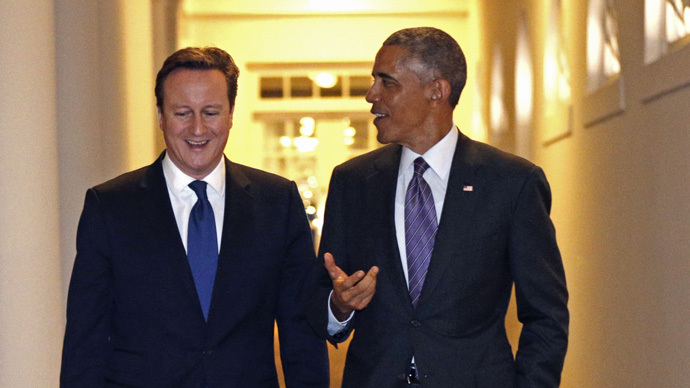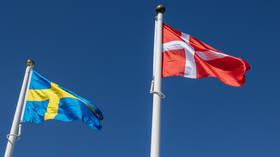End of the 'special relationship'? Secret US memo reportedly says UK losing influence with Washington

A secret memo prepared by a Congressional think tank and seen by the Daily Mail says that the US may need a "reassessment of the special relationship" with its key economic partner, Britain, "because its geopolitical setting has been changing."
Winston Churchill's 1946 speech to Westminster College, in
Fulton, coined the phrase "special relationship" to
describe the exceptionally friendly political, diplomatic,
economic, military and cultural relations between the United
Kingdom and the United States.
Some 69 years later, when PM David Cameron last visited the White
House in January, he quoted President Barack Obama as saying that
“the special relationship is stronger than it has ever been
privately and in public and I agree.”
However, a classified document dated April 2015 and prepared for
the for members of US Congress reportedly states that "the UK
may not be viewed as centrally relevant to the United States in
all of the issues and relations considered a priority on the US
agenda."
READ MORE: NATO will be harmed by UK defense cuts, Obama tells Cameron
The congressional memo, edited by Derek E Mix, the CRS’s chief
European affairs analyst, is meant to brief the Senate and House
of Representatives on the impact of Britain’s upcoming May 7
general election.
According to the Daily Mail, it says that the development of
organisations, such as the G20 group, has resulted in the
weakening of the "influence and centrality of the
relationship" between the US and UK. The memo states that
Britain's significance to the US will depend on its economic
growth.
"A significant degree of the UK’s international influence
flows from the success and dynamism of the British economy,
further raising the stakes on whether the UK can sustain stronger
economic growth while continuing to pursue ambitious fiscal
consolidation," the memo states, according to the paper.
The memo, prepared by the US Congressional Research Service, also
reportedly touches on a potential UK exit from the EU following
an ‘Out’ vote in a referendum: "Both the positive and the
negative aspects of a prospective life outside the EU are more
difficult to foresee," it notes.
Explaining the role of a hung UK parliament (which occurs when no
single political party or bloc of allied parties has an absolute
majority of seats in the parliament), the memo warns it could
even lead to a "brief period of ambiguity" and
"constitutional uncertainty."












